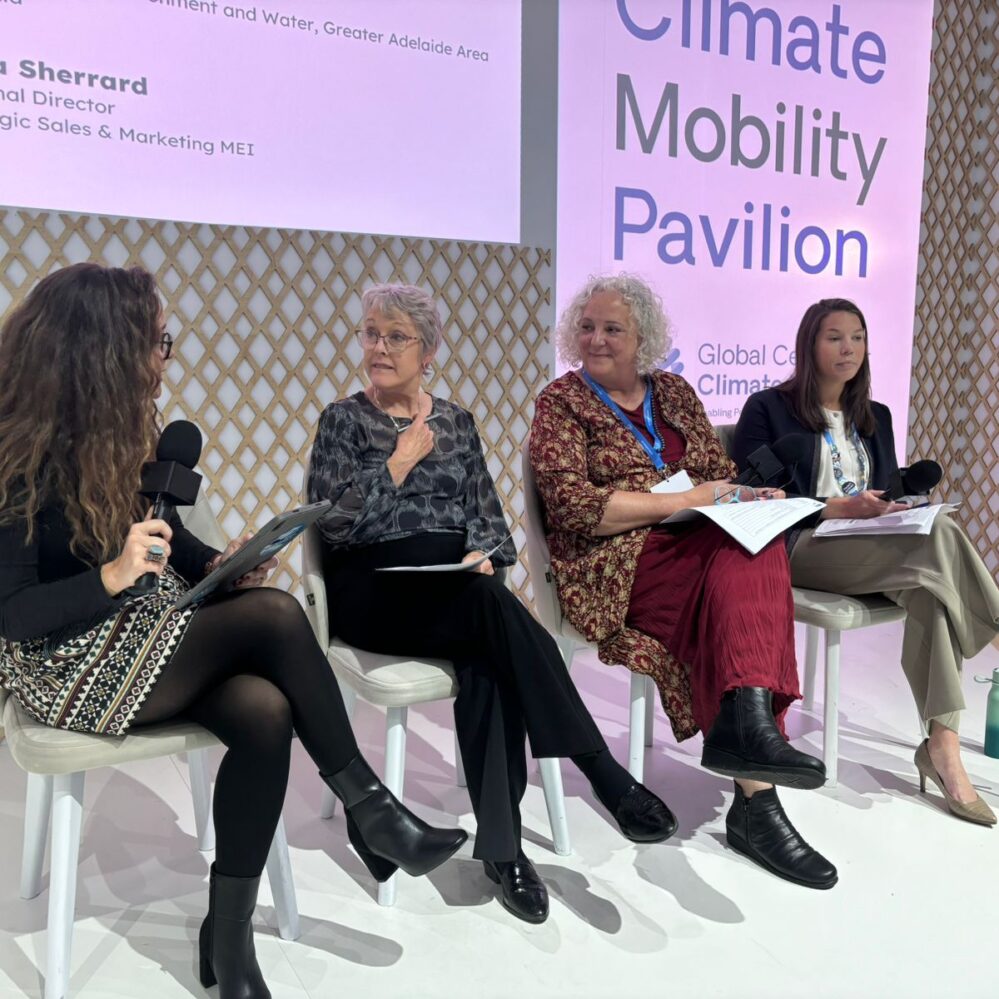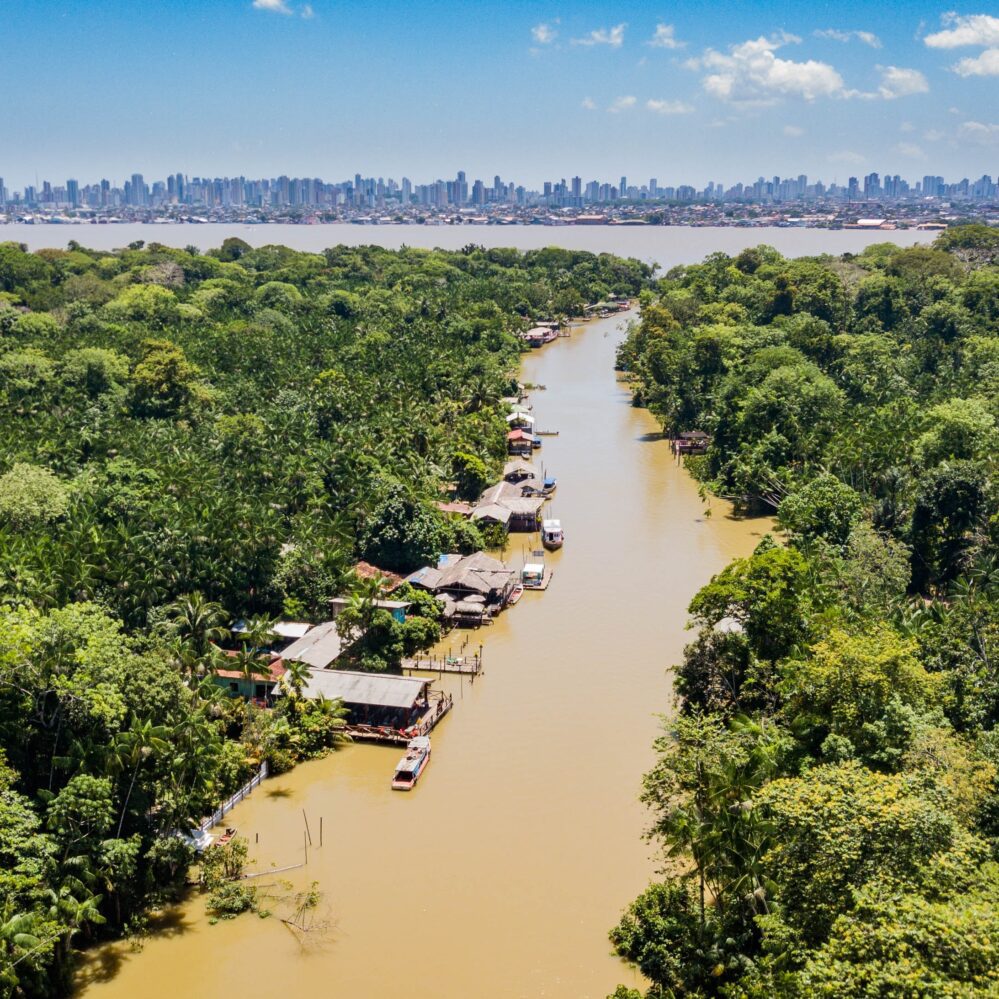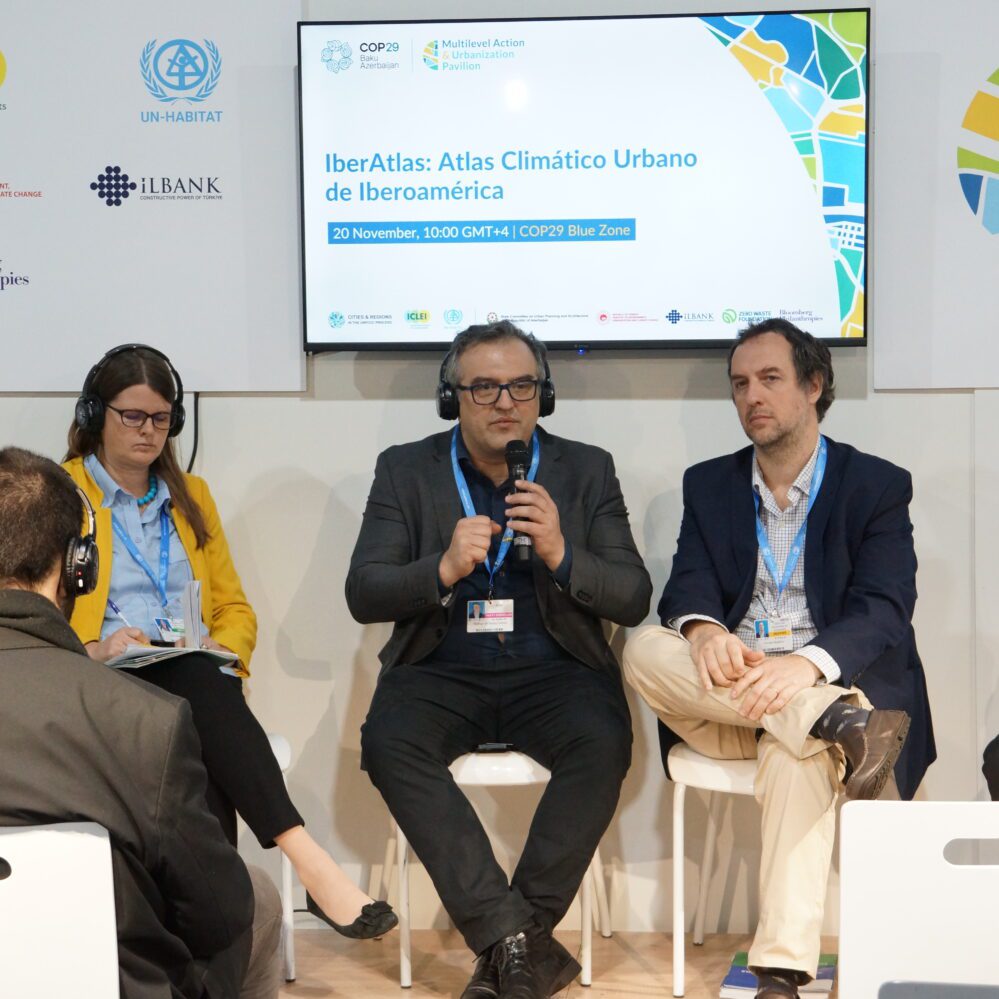Extreme heat is the deadliest climate hazard, disproportionately affecting urban populations.
At the COP30 High-Level Session on Beat the Heat / Mutirão contra o Calor Extremo, the implementation phase of the Beat the Heat Implementation Drive was launched. The Drive is a joint initiative of the COP30 Presidency and the UNEP-led Cool Coalition. It aims to accelerate the deployment of sustainable cooling and heat resilience solutions in cities worldwide, translating the Global Cooling Pledge into tangible action. ICLEI is proud to collaborate with 80+ partners, including development banks, city networks, civil society organizations and the private sector, on this critical initiative.
Working directly with Mayors, technical teams and local partners, Beat the Heat will ensure that cities can access the capacity building resources and financing needed to implement actions to combat rising heat challenges.
Opening the event, Inger Andersen, Executive Director, UNEP said: Cities suffer the most from heatwaves. The urban heat island effect can drive local temperatures up to 10°C higher than surrounding rural zones. By 2050, the number of urban poor exposed to dangerous heat could increase by 700 per cent. So, action on heat in cities is essential. This is why it is so important that 180 cities, from Rio to Chennai to Nairobi, and 80 partners, many of them here with us today, have joined Beat the Heat alongside the Global Cooling Pledge country signatories.
During the session, Adapting Cities to Extreme Heat and Reducing Emissions, Dr. Jane Lomax-Smith, Lord Mayor of Adelaide and ICLEI Member, underscored the equity dimensions of urban heat: In my city, leafy, more affluent suburbs are cooler due to abundant greenery, while poorer areas can be almost 10°C hotter. We use heat maps to guide tree planting, ensuring species are suited to both current and future climates.
Speaking in the session titled, Helping cities to Beat the Heat with tools and resources, Mark Watts, CEO, C40 Cities, highlighted that tackling heat is a growing mayoral priority, noting that one-third of pledges made at the Local Leaders Forum relate to heat action. Every tree planted and every life protected brings us closer to a more just and sustainable world.
Ana Toni, CEO of COP30, concluded by emphasising that Beat the Heat represents “people everywhere coming together toward a common goal,” stressing the pivotal role of subnational governments in driving this work forward.
Kobie Brand, ICLEI Deputy Secretary General and member of the Cool Coalition’s Steering Committee, said, “As heat intensifies, local and regional governments stand at the front lines of response. Urban cooling is not just a technological challenge, but a question of resilience, equity, and sustainability. At ICLEI, we see that advancing sustainable cooling requires embedding solutions into the fabric of urban life. And as a partner in the Cool Coalition, we help ensure that city action on cooling is recognized and supported.”





